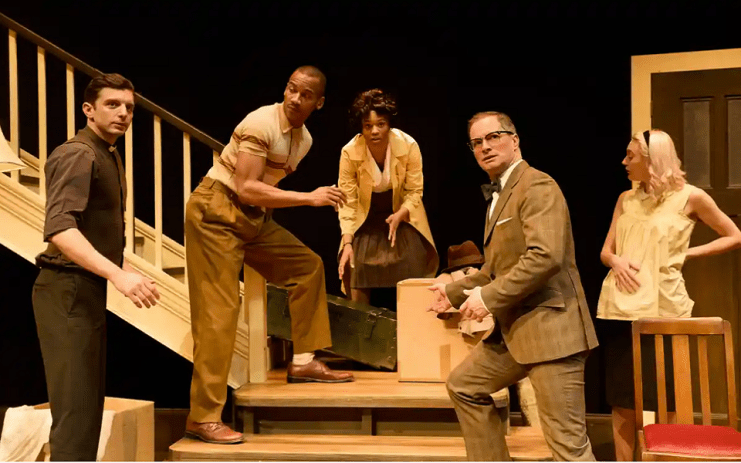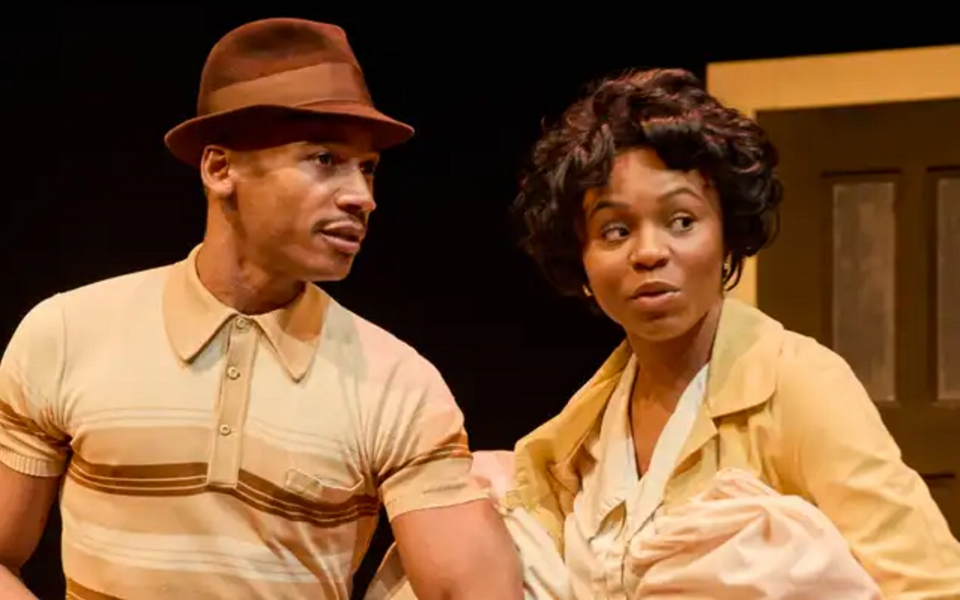Clybourne Park review: Satire on race lacks emotional depth

Bruce Norris’ clever play about the way racism lurks in the suburbs was a knock-out when it premiered twelve years ago. It bagged Olivier and Tony Awards for Best Play, and the Pulitzer Prize for Drama. So it should have: its script points out the systemic prejudices that are in many ways as pervasive today as they were fifty years ago.
Clybourne Park is a fictional suburb outside of Chicago which we first visit in the middle of last century, when it is populated solely by white middle class people. We meet a family whose son has died by suicide in an upstairs room who decide to sell their house to a black couple for lower than market value so they can move quickly. The second half, set in 2009, shows how the area has become racially diverse, but one white couple moving in display how racism persists.

Bruce Norris’ script still feels cleverly complex, exposing the conscious and unconscious ways white people have historically and systematically discriminated, and the damage that creates. The second half in particular points out the shadows in which discrimination can hide – and then appear horrifically in focus.
There are enjoyably rambunctious ensemble skits at the end of both acts, which provoke audiences to laugh along in shock. Things fall down the stairs, and fists almost fly as freely as the torrents of racism. In Norris’ script, the potent stench of racism is best expressed through satire not seriousness, so when the play is funny, that’s when the white guys – particularly Andrew Langtree’s horribly ignorant Karl and Steve characters (actors play different characters in act 1 and act 2) – have their bigotry writ large.
The trouble is that both acts take a while to get going, and some of the establishing scenes lack energy. At these points, the play reports the grim realities of racism, but never quite pulls off the right emotional highs. Perhaps this is down to variable performances: while Imogen Stubbs feels properly anguished as grieving mother Bev, Richard Lintern doesn’t quite reach the formidable heights of Russ, who is responsible for setting the tone early in the play. (He’s much better in the second half when he gets a more physical, comic performance as Dan, a builder discovering a time-kept secret.)
Clybourne Park’s script has teeth, but Oliver Kaderbhai’s revival is hit-and-miss in how it conveys the ferocious damage they can cause.
Clybourne Park plays at the Park Theatre until April 23
